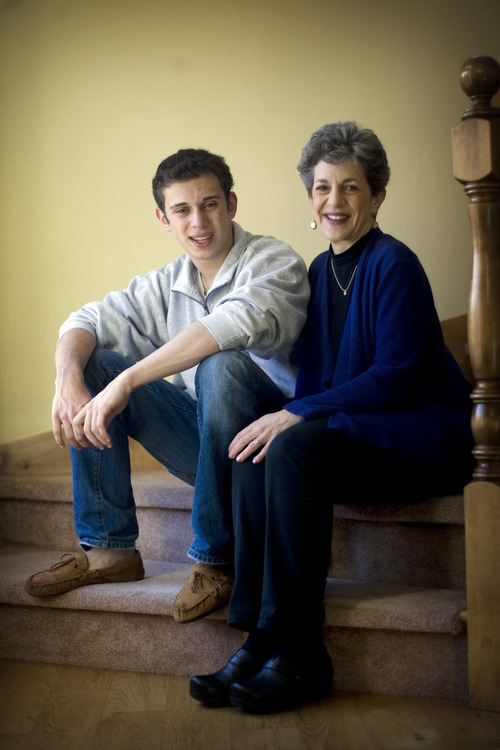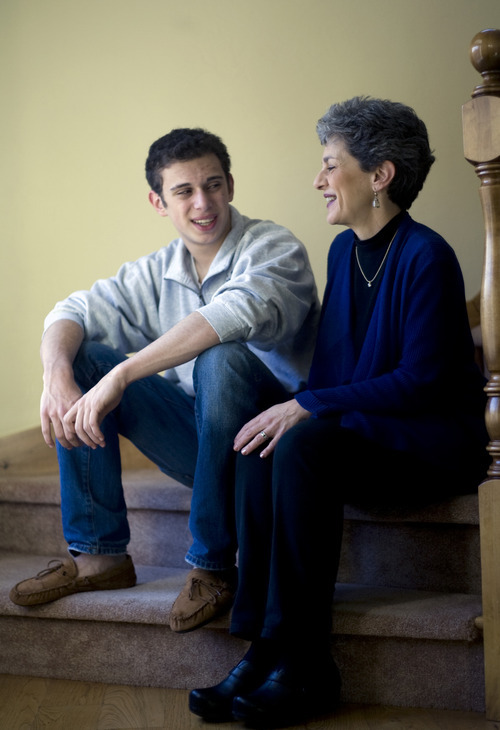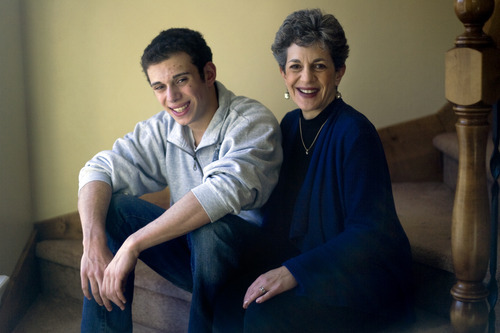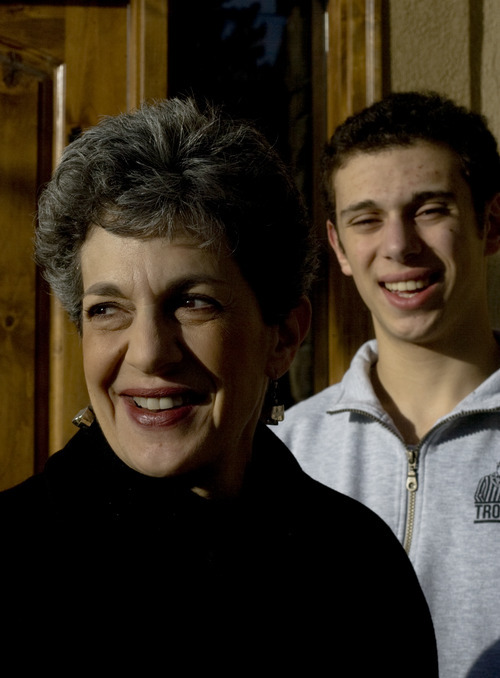This is an archived article that was published on sltrib.com in 2012, and information in the article may be outdated. It is provided only for personal research purposes and may not be reprinted.
The American Academy of Pediatrics is now recommending that boys as well as girls receive the HPV vaccine — advice some Utah parents appear as willing to follow for their sons as they have been for their daughters.
The immunization can prevent infections from sexually transmitted viruses that cause cancer. When it was initially licensed, medical experts hoped that if enough girls were vaccinated, infections could be prevented in boys.
But only about 29 percent of girls nationwide are receiving all three doses required for full effectiveness, said Michael Brady, chairman of the pediatrics department at Nationwide Children's Hospital in Columbus, Ohio. He was part of the academy committee that wrote the new recommendation.
"What we can do is try to explain to people we have a cancer vaccine," he said. "If it becomes gender neutral, we're hoping that it will be less of an issue about 'Why did you ask for my daughter and not my son?' "
HPV, the human papillomavirus, is found most frequently in sexually active adolescents and young adults, according to the pediatrics organization. Its decision to recommend the vaccination for boys, announced Monday, follows similar advice last fall from the Centers for Disease Control and Prevention. The immunization was originally recommended exclusively for girls in 2007.
Though the state does not track HPV immunization rates for boys, the Salt Lake Valley Health Department has immunized nearly as many boys as girls over the past six months at its clinics: 604 females and 547 males. Two-thirds of that group were Medicaid patients.
"We are starting to see more and more parents being accepting," said Jeannie Poore, a Salt Lake Valley nurse, noting that clinics are having more success with boys returning for the necessary follow-up shots.
According to a 2010 National Immunization Survey of teens, 22 percent of Utah girls between ages 13 and 17 had received three doses of HPV, versus 32 percent nationwide.
The majority of HPV infections have no symptoms and resolve in two years. But ongoing infection can lead to mouth, anal and penile cancer in boys. The virus is linked to cervical and anal cancers for girls as well as genital warts in both sexes.
HPV causes cancer in approximately 15,000 females and 7,000 males each year.
The pediatrics group recommends that all 11- to 12-year-olds receive the immunization because antibody response is highest between the ages of 9 and 15. Also, the vaccine is most effective before sexual activity begins.
Brady said research has shown the vaccine is safe, but like adolescent immunizations in general, it is known occasionally to cause fainting after the injection.
In Utah and across the country, stigma remains connected to the relatively new HPV vaccine. Some parents tell health providers that providing the vaccine to their child will empower him or her to become sexually active. Doctors respond that providing the vaccine doesn't give the patient permission to have unprotected sex.
Utahns have questioned why their child should be vaccinated when he or she won't have sex until marriage, said Nicole Mihalopoulos, an associate professor of pediatrics who runs a clinic for teens at the University of Utah.
She tells them, "I can't predict if the kid ever gets raped and can't predict if their partner is going to be a virgin."
The academy's move to advise parents to vaccinate their sons "is fantastic and it makes absolutely sense," Mihalopoulos said. "The girls won't get HPV if they don't have sex with the boys who have it."
Some parents, who were aware of the vaccine for girls, had already asked doctors if they could also get it for their son.
Patrice Arent, a Democratic state legislator from Millcreek, chose to immunize her teenage son last year on the recommendation of her doctor, knowing the longterm benefit.
"I didn't consider future sexual partners," she said. "I was concerned with his health."
Arent believes all parents should consider the vaccination. "It's important to protect our children," she said.
Bonnie Hardy, nurse immunization coordinator at the Utah County Health Department, would like to see the vaccines recommended by the CDC be required for school attendance in Utah.
"Kids didn't get a Tdap shot until it was required," she said, referencing the combined vaccine for tetanus, diphtheria and pertussis required for school. Now Tdap rates are going up.
"Until it's a law, parents don't get it," Hardy said.
To learn more
O Read more about the vaccines and see who is advised to be immunized.









